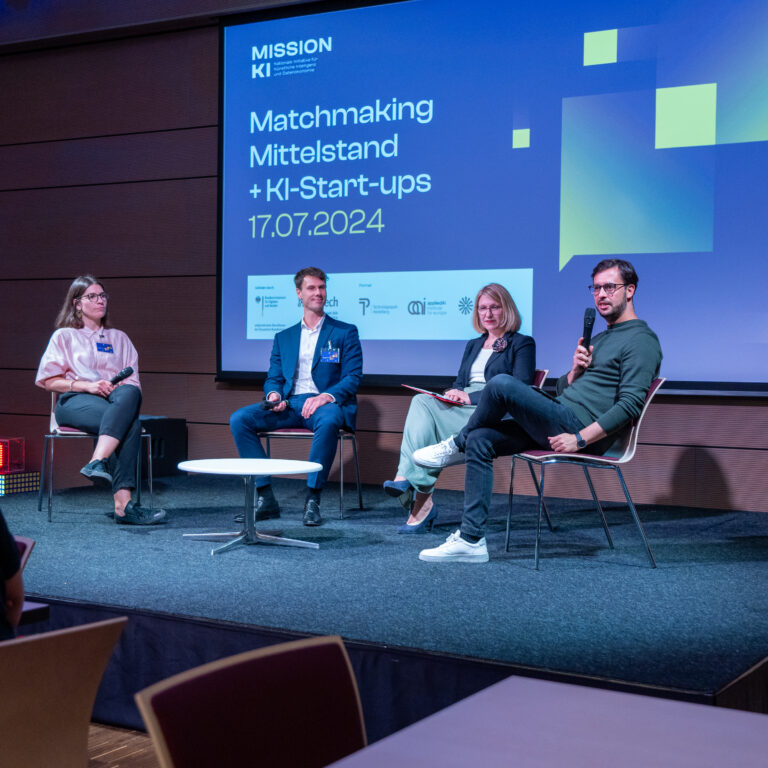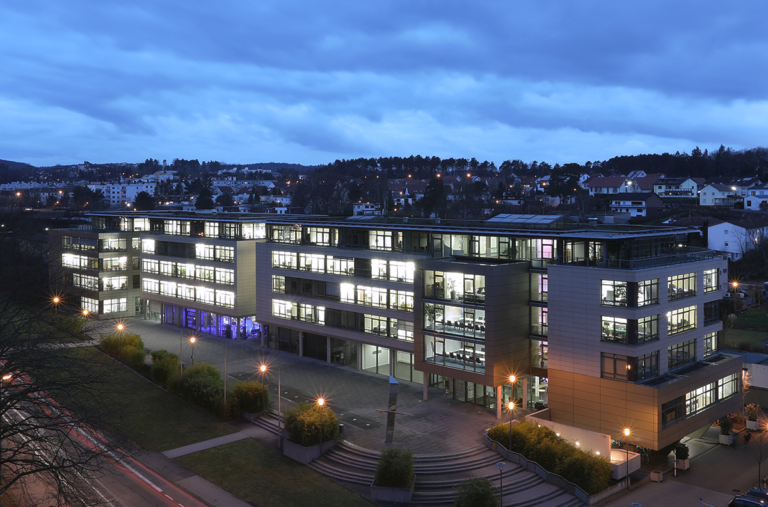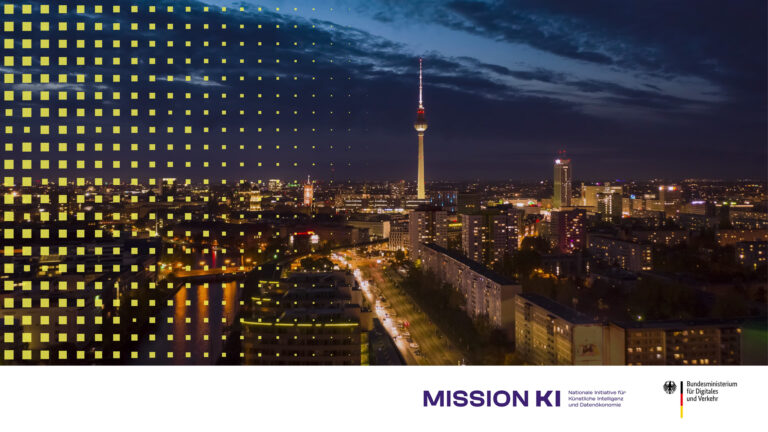For medium-sized companies, identifying their AI needs, selecting providers, and implementing solutions ties up time and resources. This is precisely where a joint project by MISSION KI, the appliedAI Institute for Europe, Heidelberg Technology Park, and IPAI can be of assistance: In three steps, medium-sized companies are guided through the process of developing tailor-made AI projects. First, the companies’ AI challenges are identified, then suitable AI startups are selected from across Germany. The selected project partners will be brought together at an event in July 2024. Medium-sized companies from Baden-Württemberg are currently being actively invited by the organizers, but can also apply for the program themselves.
Objectives
Medium-sized companies should become familiar with AI technologies and identify solutions from AI startups that align with their specific needs. This provides medium-sized companies with a gateway to new technologies and real-world applications of AI. The format should serve as a platform for AI startups to enhance their visibility, expand their network, receive feedback on their solutions, and secure customers. The goal is to form partnerships for promising projects. The participating AI startups should be actively introduced to the market, but should not have been founded more than five years ago.
Manfred Rauhmeier, Managing Director of acatech – German Academy of Science and Engineering, emphasizes: “As part of this project, we are bringing regional medium-sized companies together with AI start-ups from all over Germany. Strong medium-sized companies in the regions are a driving force of the German economy. However, they are just as subject to the digital transformation process as the economy worldwide. AI does not stop at the regions, and the pressure to innovate is high. That is why we will analyze the specific needs of the participating companies and bring them together with selected AI start-ups so that tailor-made solutions for internationally competitive companies can be created.”
Thomas Weber, President of acatech – German Academy of Engineering Sciences, is pleased to announce the official launch of the project. “By connecting regional SMEs with nationwide AI start-ups, MISSION KI is delivering on its promise of promoting AI innovation through targeted measures. The project is bridging the gap between specific regional needs and the innovative strength of nationwide AI start-ups, accelerating the transfer of competitive AI innovations to the market. MISSION KI is thus providing targeted impetus for a growing AI ecosystem, which is an important signal for technological sovereignty and the future-proof design of Germany as an innovation location.”
Dr. André Domin, Managing Director of Technologiepark Heidelberg GmbH, explains: “The connection between established, medium-sized companies and up-and-coming AI start-ups is a win-win situation for both sides. The medium-sized companies gain quick access to innovative technologies to improve their competitiveness. The start-ups can validate the added value of their technology and gain reference customers. In addition, the local experts can do networking throughout the region and become known as innovation drivers.”
Implementation
The individual innovation needs of the participating companies will be determined in an interview. On this basis, suitable AI startups from all over Germany will be scouted. The selected 10 companies and 12-15 AI startups will be brought together at a networking event to exchange ideas about possible collaborations.
The goal is for companies and AI startups to define projects and plans based on the identified AI needs, and then implement them together. The project partners, the medium-sized company and the start-up, will then work out the implementation together.
The matchmaking is the first of several MISSION KI activities that will be launched in the coming months. To support SMEs in developing trustworthy AI applications, MISSION KI and other partners will be opening AI innovation and quality centers at numerous locations in Germany. In these AI centers, companies will get access to know-how for the implementation of AI systems. MISSION KI also supports spin-offs of AI applications from research.
For companies, the application deadline is April 26, 2024: Click here



